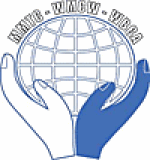OFFICIAL NAME
World Movement of Christian Workers
AKRONYM
WMCW
ESTABLISHED
1966
HISTORY
WMCW was created by the workers’ associations of Austria, Belgium, France, Germany, Switzerland and the Netherlands in the 1950s, when they decided to join forces to create an international structure to encourage exchanges and knowledge between individuals and different situations; to stimulate solidarity between workers’ movements; to foster the spread of Christian workers’ movements in the world; to develop the apostolate in the labour world, offering a forum where workers, whether Catholics or members of other religious denominations, could meet; and to ensure contact with the Church and civil authorities at worldwide level. Founded officially in Rome to coincide with the 75th anniversary of Rerum Novarum, and recognised by the Holy See as an International Catholic Organisation, WMCW is a member of the Conference of ICOs. As an NGO it has consultative status with Ecosoc, ILO and UNESCO.
IDENTITY
As an educational and evangelisation Movement, WMCW bases its commitment on faith in Jesus Christ, the Gospel and the social teaching of the Church. It is intended for men and women workers, the unemployed, temporarily employed, pensioners and housewives who are ready to take up the challenges of the age and commit themselves together with others - regardless of race, culture or creed - to improve their living conditions and build up a society without exclusions. The approach used by the movement is based on the "revision of life" and "see-judge-act" method. WMCW strives to achieve recognition and support by the Church and the political authorities of civil society for the life and work of the weakest, so that workers may take on professional, cultural and civic responsibilities by cooperating with all men and women of goodwill.
ORGANISATION
The supreme organ of WMCW is the General Assembly which meets every four years, attended by delegates of the affiliated associations, to draw up the priorities of action for the Movement and to elect the officials: the Executive Council, the Bureau and the General Secretariat. The Executive Council, comprising members representing different continents, implements the four-year programme (international plan of work) decided on by the General Assembly, and is responsible for animating and coordinating the member movements. The Bureau - whose members must be of different nationalities and include at least two women - comprises the President, the Vice President, the Secretary General, the Deputy Secretary General, and the Treasurer and is responsible for implementing the decisions of the Executive Council in conjunction with the General Secretariat. The General Secretariat comprising two Secretaries General and General Ecclesiastical Assistant, ensures contacts between the affiliated movements and has a representative role. All educational and apostolic movements of adult workers who organise their work for the benefit of all workers can become full members of WMCW, provided that they are managed at all levels by the workers themselves, and are recognised by the Church in their own countries.
MEMBERSHIP
WMCW comprises 46 full member movements and 8 corresponding member movements which, together with a further 19 contact groups, gives it a presence in 79 countries as follows: Africa (27), Asia (13), Europe (17), Middle East (2), North America (9), and South America (11).
WORKS
WMCW does not run works of its own, but the national movements affiliated to it are often engaged in implementing development programmes and animating training centres.
PUBLICATIONS
INFOR, published every two months in French, English, Portuguese, Spanish and German.
WEB SITE
HEADQUARTERS
Mouvement Mondial des Travailleurs Chrétiens
124, Boulevard du Jubilé - 1080 Brussels - Belgium
Tel. [+32]2.4215840 - Fax 2.4215849
Email: mmtc@skynet.be








